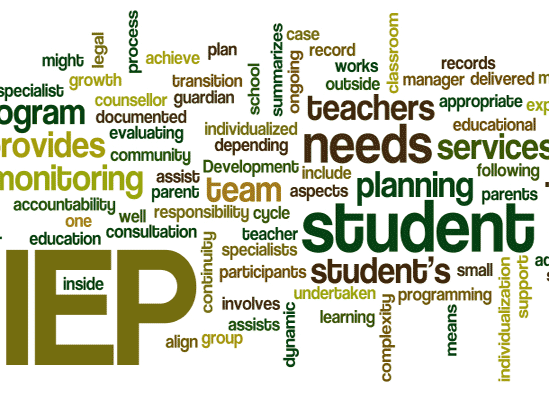The Individuals with Disabilities Education Act (IDEA) requires school districts to monitor progress on the goals in the Individual Education Programs (IEPs) for students with special education needs. Progress monitoring is the scientifically based practice of specifically measuring progress regarding a specific area of need. Unfortunately, many school districts are not appropriately monitoring progress on students’ IEP goals. Without appropriate progress monitoring, there is no way to know whether a student is making progress, and whether revisions to the student’s special education programming are necessary.
It is first important to ensure that IEP goals are measurable, with baseline upon which progress is monitored. This means that IEP goals need to include what is actually being measured (e.g. reading comprehension or attention to task), how it is being measured, and where the student is functioning upon initial implementation of the goal.
The method by which progress is monitored is extremely important in insuring that accurate and appropriate progress monitoring is occurring. More specifically, the methods for measuring progress must include objective measures of the specific goal. Simply utilizing subjective measures, such as teacher observations, or therapist observations, or even grades is not sufficient to measure progress on IEP goals. Moreover, specific information must be provided regarding the methods being used to measure progress. For example, simply stating “data collection” is insufficient. The specific means by which data will be collected must be provided, including who will be collecting the data, how the data will be collected, how often it will be collected, and under what circumstances the data will be collected.
Parents should also be provided with reports of progress as frequently as necessary, rather than when convenient for the school district. Quarterly progress monitoring is almost universally implemented in IEPs. However, more frequent report of progress monitoring is appropriate in many situations. A student with significant behavioral needs may require weekly or even daily reports to parents.
Parents need to carefully review their child’s IEP goals, including a review of how their child’s progress is being measured and how and when they will be provided with reports of their child’s progress.
If a parent does not understand or has any concerns with the level at which their child is currently functioning, what is being measured, how it is being measured, and when they will be provided with reports of their child’s progress, the parent should immediately seek clarification, in writing.
At Ivie Law Group, parents tell us their children are being moved to a more restrictive classroom from because they have been told that their child wasn’t making enough progress. The progress of a special education student cannot be compared and measured against other students, and can only be measured by the student’s progress toward IEP goals. Parents are urged to ask for the data collection used to measure the student’s IEP goals progress, and to have it explained to them. Parents are also urged to ask that the student’s IEP be revised as soon as possible at an IEP meeting.
Categories:Uncategorized
0 Likes





